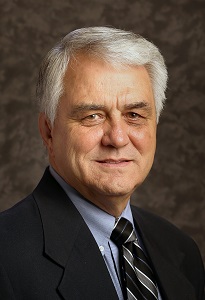When lawmakers return to the Capitol for the official end of the 2021 session, the Senate will have some unattended business to take up.
Republican senators will have to choose their new majority leader to replace Sen. Gene Suellentrop, who was forced out of the position after he was arrested and charged with drunk driving and eluding police.
The campaign for majority leader started to form before the wrapup session began with Acting Majority Leader Larry Alley announcing his candidacy for the position on April 15.
This week, Sen. Jeff Longbine, the former Senate vice president, officially joined the race, and Sen. Richard Hilderbrand could jump in as well before the week ends.

“No one has emerged as the presumptive winner,” one Senate Republican said. “It seems like no one is satisified with their choices.”
The race is still murky, although Alley is believed in some quarters to be the front-runner; however, interviews indicate Longbine is in a solid position.
The situation is believed to be fluid, with some leaving open the possibility that other candidates — maybe even Sen. Renee Erickson — could enter the picture depending on how the campaigns unfold.
Various interviews with Republicans in the Senate indicate that Alley would win support because of his conservative credentials, although he’s not seen as a strong leader.
Some Republicans criticized Alley’s inability to secure enough votes to get even a majority for the resolution calling for a convention of states.
Others also said Alley could lose support because he signaled he would keep the current staff in the majority leader’s office, which includes former state Sen. Eric Rucker as the chief of staff.
In his letter to the Republican caucus, Alley said the existing majority leader’s staff “has peformed above and beyond during this uncharted time.”
Some senators grumbled during the session, however, that Rucker seemed to have outsized influence in the chamber, noting that as a legislative staffer he took the rare step of testifying on behalf of an elections bill.
Alley could not be reached for comment Thursday. A voicemail could not be left on his phone, and text messages were kicked back.
“How do you quantify influence?” Rucker asked in an interview.
“I can’t compare past chiefs of staff to myself,” he said.
“Even with the two years that I was a member of the Senate, I never really had the occasion to quantify the influence that other chiefs of staff in the president’s, the vice president’s and the majority leader’s offices were exercising,” he said.
Rucker said he had the freedom to engage his bosses — Suellentrop and Alley — and offer his insights.
He said his testimony on the election bill was done with the full knowledge of the senators he worked for.
Alley talked about the need for “restoring confidence in the caucus.”
“With change in leadership comes opportunity for improvement, there are a couple of areas which I think can be improved,” he wrote in his letter to the caucus.
“One is communication. As the leader of the caucus I believe in an open-door policy where all members of the body should have access,” he wrote.
“The other is input from committee chairs and vice chairs as to bills they value as important and would like to see above the line.”
Longbine, meanwhile, is a seasoned lawmaker who has served in leadership, although he’s seen as more moderate than the rest of the Republican caucus.

He’s seen as someone who could bring more stability to the leadership team, which has grappled with Suellentrop’s arrest earlier this year.
By some counts, Longbine could perhaps already have 12 of the 15 votes needed to win the position, although there is a coalition of maybe eight conservative senators who would likely never vote for him. The Republican caucus numbers 29.
Longbine entered the Senate in 2010 and served as vice president from 2017 to 2020.
He considered running for Senate president in 2020 but withdrew after conservatives expanded their control of the Senate and elected Ty Masterson instead.
“While there are many respected leaders in our caucus, I believe my prior experience in leadership as Senate vice president and rules chair, the lessons I’ve learned as a committee chair, and my proven track record in fundraising make me uniquely qualified to help you achieve your policy and political goals,” Longbine wrote to the Republican caucus.
Longbine said his voting record shoud be an indicator of his political inclination, noting that he has a strong record voting against abortion and supporting gun rights.
He also has been a supporter of Medicaid expansion, something generally opposed by conservatives in the Legislature. Alley has opposed Medicaid expansion.
Both lawmakers supported the tax bill that passed the Legislature this year, and they backed the bill that would have banned transgender girls and women from participating in interscholastic sports for females.
They parted ways on the expansive education bill that would have broadened two school choice initiatives, including one allowing struggling public school children to take their per-pupil state funding to attend a private school in certain circumstances.
Longbine opposed the bill and Alley supported the legislation, which ultimately died on a 20-20 vote in the Senate.
They both backed a new version of the bill that tied the education budget to expanding a program that awards tax credits for donations to private school scholarships so it would cover more students.
“I think what I can bring to the caucus is the ability to knock down factions within the caucus,” Longbine said.
Longbine said one of his assets is understanding the legislative process and that he would work to ensure everyone has an equal voice and the caucus’ agenda is promoted.
“Communication within the caucus is extremely important,” he said.
“We never talk strategy. We never have those conversations. We never talk about why we’re running this bill, when we’re running it or that type of thing.
“I think our caucus membership needs to know those type things.”
Meanwhile, Hilderbrand is contemplating a run for the position, although interviews offer conflicting accounts about whether he would ultimately run.
He’s facing his own criticism for adamantly opposing the convention of states bill and the attempt to pass the legislation with a simple majority instead of the two-thirds required by the state constitution. The bill failed to even get a majority.
“I’m seriously, seriously thinking about it,” Hilderbrand said when asked about whether he would run for the leadership position.
“Still a lot of prayers to go into it to make sure that’s the direction I want to go,” he said.












